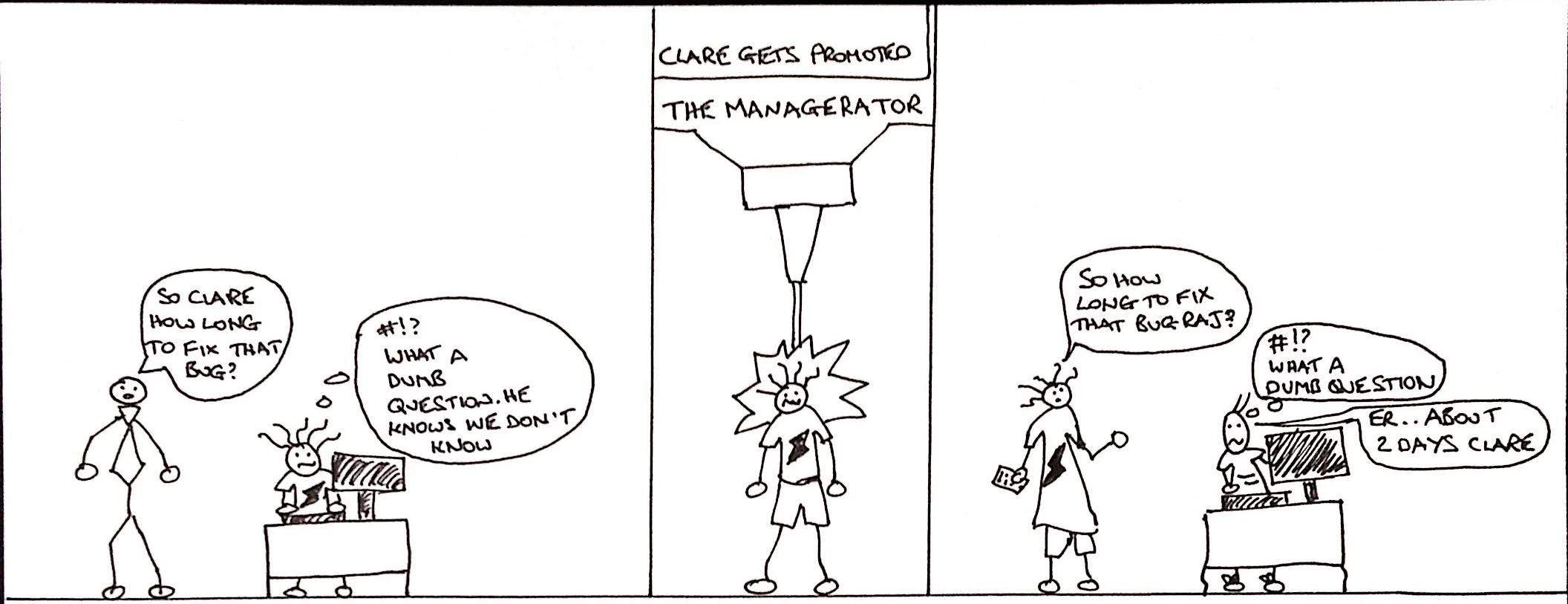Beware the Managerator
Why when someone gets promoted to a manager do they completely forget the realities of the job they used to do? The only sensible reason I can come up with is that they lose 5 minutes of their lives in the Managerator. You won't find this device on the internet. It's only sold to heritage organisations because the suppliers only accept something called a cheque (or check for my U.S. friends). Each Managerator comes with a free supply of command and control management handbooks for each of its victim.
Recognising the Change
But seriously we've all seen it. A colleague of ours is promoted to manager and starts to ask us the exact same questions they knew where stupid when they weren't managers. Some of my favourite stupid questions in software development are around software estimation.
The "How long will it take to build/fix feature X" conversation. Clare used to know that if we'd never built feature X before then it's unlikely our estimate would mean much on its own. It would be more useful if it was used to compare building feature X to feature Y. That way if we had a relative estimate of the value we could get from shipping feature X or feature Y we could start to make some useful trade-offs.
Clare thought that the bell curve performance management system was in conflict with making her team better. She believed that it made everyone better if they shared knowledge and learnt to improve their product and their process together using safe to fail experiments. Clare knew that the bell curve caused team conflict not collaboration. Now she's been on the corporate "How to Motivate Your Team" management training her intelligence has regressed by 60 years.
Clare also used to be able to understand that you didn't need a 50 page PowerPoint presentation including a full risk adjusted return on investment based business case to justify attending a conference on the latest learning on your technology stack. But the Managerator saw to that.
The Managers Job
As a manager your job is to remove systemic impediments for your team. It's to manage systemic risk and to do this by only setting the constraints on your team that manage those risks. Let your team work out how to address those risks. Coach the team, the individuals and your manager to improve.
Conclusion
For those who are already managers take a look through your notebooks, instant messages and email history to remind yourself of all of the things that irritated you about your dumb manager and make sure you don't do the same. If you aspire to be a manager start saving those stories now and remind yourself to look in the mirror regularly and watch for that missing 5 minutes. The Managerator is out to get you.
